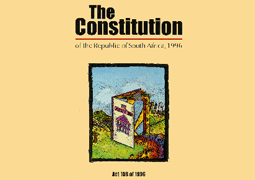
Parliament, Wednesday, 6 November – The Ad Hoc Committee to Initiate and Introduce Legislation Amending Section 25 of the Constitution today held a workshop on Constitutional Dialogue on Land Ownership.
Committee Chairperson, Dr Mathole Motshekga, said the purpose of the workshop, titled “Constitutional Dialogue on Land Ownership”, was to gather insights from experts and stakeholders in order to gather information on how to draft the Bill that will make it possible to amend the Constitution, to allow for the expropriation of land without compensation.
“This lies at the heart of our nation-building project. We must put aside our vested interests and put the interest of all South Africans, both black and white, first. This is a legacy challenge created by people who are no more,” said Dr Motshekga.
The committee was mandated by the National Assembly to initiate and introduce legislation amending section 25 of the Constitution, and have regard to the work done and recommendations as contained in the reports of the Constitutional Review Committee and the previous Ad Hoc Committee on Amendment of section 25 of the Constitution.
Dr Motshekga said it is unfair that 13% of the land is in the hands of the minority. He however made it clear that the “original sin of land dispossession” was started by British imperialism.
Judge Johann van der Westhuizen, Inspecting Judge of Correctional Services, was the facilitator at the workshop. He was closely involved with drafting the Constitution, specifically the Bill of Rights. He was a judge in the Constitutional Court for 12 years. He made an appeal to everyone to listen to other parties, irrespective of their views.
The Parliamentary Legal Services gave the committee two ways in which the Constitution could be amended. Option one is to amend subsections (2)(b) and (3)(b), subject to compensation, the amount of which and the time and manner of payment of which have either been agreed to by those affected or decided or approved by a court, provided that a court may determine that no compensation is payable in the event of expropriation of land for the purpose of land reform.
Where compensation is payable, the amount of the compensation and the time and manner of payment must be just and equitable, reflecting an equitable balance between the public interest and the interests of those affected, having regard to all relevant circumstances.
Option 2: Insert a new subsection:
“Notwithstanding the requirement for compensation contemplated in subsections (2), (3) and (4), land may be expropriated without the payment of any compensation as a legitimate option for land reform in order to redress the results of past racial discrimination.”
During the discussions, the question of the cut-off date of 1913 for land expropriation should be removed from the Constitution as it would defeat the purpose of land redistribution. The workshop agreed on the time frames and is confident it will meet the deadline of end of March 2020.
Dr Motshekga said he will call on all MPs to ensure “that we take the views of all parties and stakeholders on board. We (MPs) don’t hold the monopoly on wisdom”.
The committee will deliberate next week regarding the workshop dialogue.
ISSUED BY THE PARLIAMENTARY COMMUNICATION SERVICES ON BEHALF OF THE CHAIRPERSON OF THE AD HOC COMMITTEETO INITIATE AND INTRODUCE LEGISLATION AMENDING SECTION 25, DR MATHOLE MOTSHEKGA.
For media enquiries or interviews, please contact the Committee’s Media Officer:
Name: Rajaa Azzakani (Ms)
Tel: 021 403 8437
Cell: 081 703 9542
E-mail: razzakani@parliament.gov.za

